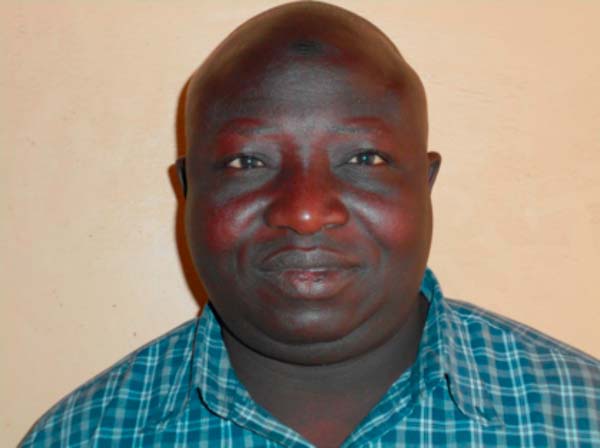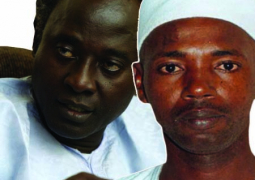
It
is time to clear the air, clarify issues and to put things in their proper
contexts.
It
is unfortunate that the constitution was misinterpreted on parliamentary
procedures.
This
particular piece of the news was captured on the front page of the Foroya
newspaper on the 2 March, 2017. Captioned “The passing of the Bill on setting
aside the 65 year age limit is unconstitutional” says Halifa Sallah.
The
constitutional provision on Section 62 – (1) (b) reads:
“A
person shall be qualified for election as President if – he or she has attained
the minimum age of thirty years but not more than sixty-five years;”
Though,
the constitution provides for two modes of amending its provisions, and also
provides two procedures for amending other laws.
With
reference to Section 101sub 3 of the 1997 Constitution of The Gambia states:
“No
Bill, other than a Bill referred to in subsection (5), shall be introduced into
the National Assembly unless it has been published in the Gazette, and such
publication has been made at least fourteen days before the date of its
introduction:
Provided
that where the President certifies that the enactment of the Bill is required
in public interest as a matter of urgency, the Bill may be introduced
notwithstanding it has not been published fourteen days beforehand, but the
Speaker shall, on the introduction of the Bill, cause a vote to be taken in the
National Assembly without debate on a motion to give consideration to the Bill
notwithstanding that the said period of fourteen days not expired.”
It
is also pertinent, for one to take note of the proviso in sub (3) of Section
101.
A
proviso in any case has three functions with regard to the law;
(1) to limit the law/rule;
(2) to re-enforce the law/rule; or
(3) a complete departure from the law/rule
With
regard to Section 101 sub (3), is a complete departure from the normal fourteen
days Gazette rule.
On
the other hand, section 226 provides for the amendment of entrenched and
non-entrenched provisions of the Constitution.
The
age limit does not belong to the entrenched clause. Hence, Section 62 (1) b in
fact the whole of Section 62 did not fall under the category of laws or class
of laws that required amendment as provided under Section 226 sub (2).
Section
226 sub 2 provides:
“Subject
to subsection (4), a bill for an Act of the National Assembly under this
section shall not be passed by the National Assembly or presented to the
President for assent unless –
(a) Before the first reading of the Bill in
the National Assembly, the Bill is published in at least two issues of the
Gazette, the latest publication being not less than three months after the
first, and the Bill is introduced into the National Assembly not earlier than
ten days after the latest publication; and
(b) The Bill is supported on the second and
third readings by the votes of not less than three quarters of all the members
of the National Assembly.”
Now
for one to better understand Section 226 sub 2 as above, it has to be read
together with subsection (4) of the 226, which states:
“A
Bill for an Act of the National Assembly altering any of the provisions
referred to in subsection (7) shall not be passed by the National Assembly or
presented to the President for assent unless –
(a) the Bill is published and introduced in
the manner required by paragraph (a) of subsection (2);
(b) the Bill is supported on the third
readings by the votes of not less than three quarters of all the members of the
National Assembly;”
It
is important for one to know that the entrenched clauses of the Constitution
are all mentioned under Section 226 sub 7(a) – 7(l) of the 1997 Constitution.
Hence, these are the laws to which subsection (4) applies to.
Moreover,
it should be noted that the only mode of altering or amending an entrenched
clause is by a super majority, which is subjected to the 50 – 75% rule as
provided under Section 226 sub (4) d.
There
is nowhere in Section 226 sub 7 that made mentioned of Section 62 of the
Constitution.
Therefore,
Section 226 sub 7 of the Constitution is very much prescriptive of the sections
that subsection (4) of 226 applies to, which shall be read in conjunction with
subsection (2) of 226
In
other words section 226 sub (2) can better be understood if read together with
section 226 (4), and not in isolation.
It
is important for one to know that, one cannot interpret the law without taking
into account the mens legislatoris – Latin “the intention of the lawmaker”.
Equally,
what deserve attention is the mens legis – Latin “the mind of the law or the
spirit or purpose of a law in interpreting the law. Thus the legislative intent
should be looked together with the spirit or purpose of the law, for one to
understand what defect or mischief the law intends to remedy.
Furthermore,
the Constitution is not been restrictive in the language “other laws” is not
restricted or limited to electoral laws only as mentioned by Hon. Sallah.
Therefore,
with regards to parliamentary procedural propriety, the Hon. Minister of
interior Mr. Mai Ahmed Fatty is been legalistic in his approach with the
amendment of setting aside the upper age limit of 65 years.
Henceforth,
the amendment procedure of Section 62 (1) b is in line with the spirit and the
intendment of the 1997 Constitution.
Section
62 is such a draconic law that, it even has an adverse effect on Section 70,
with regards to the Vice-Presidential appointment.
Time
is of the essence, tempus fugit – Latin “time flies”. In other words time is
running out on the coalition. The coalition has less than 152 months to the
five years, which means they have less than 260 weeks, and convert weeks to
days, they have less than 1777 days to go.
At
this point in time, it is a crucial and psychological moment for The Gambia. We
need to move on as a nation, and there is no time for red-herring and time
consuming bureaucracy.
All
and sundry in the coalition shall see themselves as persona grata and not
persona non grata of the coalition.
However,
a statement like this is not meant to agitate any one, Hon. Sallah included,
but rather to put things in their proper perspective.
I
only got involved, only I reiterate to establish and to maintain the
correctness, exactness, and the accuracy of the organic law of the country i.e.
the Constitution.
Finally, the last statement in this argument has to come from Lord Denning MR (as he then was) said in Pearlman v. Harrow School, that, “however simple the words, their interpretation is a matter of law.” In other words, words are most often prone to deferring meanings. Even a very simple word can be differently understood.
Author:
Kawsu E Jadama, Brikama Town



